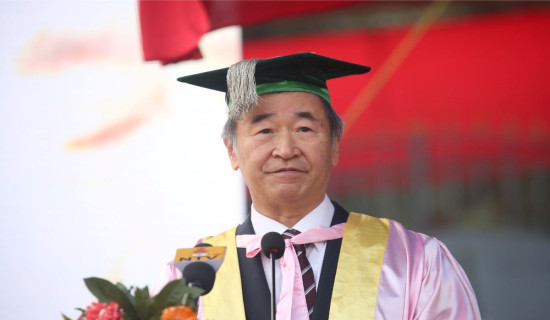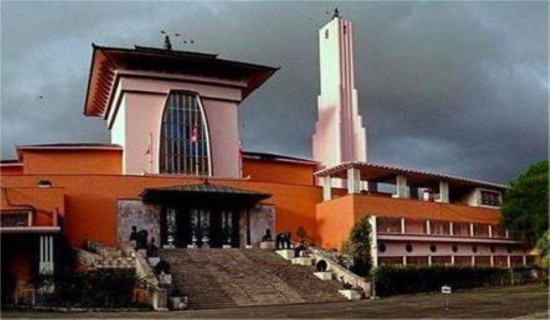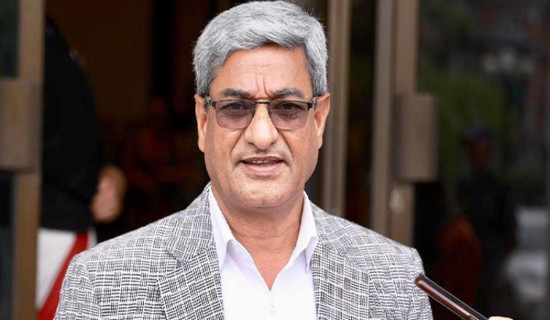- Thursday, 25 December 2025
Academic discussions on Khasa civilisation held
By Netra Shahi,Jumla, Oct. 28: Academic discussions and cultural exhibitions on the folk culture of the Khasa civilization were held in Sinja, the origin of the Nepali language.
Organised by Lok Barta Parishad Nepal, the event brought together Sinja Rural Municipality, Hima Rural Municipality and Kanakasundari Rural Municipality for a broad gathering at Narakot in Sinja, where research papers on local culture were presented and discussed.
Dr. Shashi Thapa Pandit presented a paper on the origin and cultural impact of the Khas people while cultural expert Sital Giri spoke on the Masto and Khas people.
Dilbikram Aang and Sinja Rural Municipality Chairperson Purna Prasad Dhital discussed the unique festivals and values of the Khas people.
Educator Devaraj Dhital presented on the conservation of Khas heritage, and Netra Bahadur Shahi, Chairperson of the Federation of Nepali Journalists, Jumla branch, discussed traditional communication systems of the Sinja civilisation.
The 13th symposium of the Lok Barta Parishad Nepal included debates, discussions, and presentations of Khas cultural arts by experts of the Khas civilisation.
The event in Narakot featured local cultural performances, such as the Mangal, Balo, Deuda, Dhami, Ropai, and Singaru dances, along with solo songs.
Artists from the Kanakasundari Rural Municipality Karnali Khas Sanskritik Mancha, Jumla, along with local cultural artists, showcased the performances.
Karnali Province Chief Yagya Raj Joshi said that Sinja is a treasure trove of gold, diamonds, and pearls, emphasising the need to preserve and explore the region’s civilisation.
He highlighted the importance of everyone contributing to the preservation of this heritage.
Lok Barta Parishad Nepal Chairman Bhabeshwor Pangeni said that the council was established to preserve Khas civilisation, and this time the 13th symposium was held in Karnali.
The council’s programmes took place in Surkhet on October 19, in Dullu on October 20 and 21, in Khadachakra in Kalikot on October 22, in Tatopani on October 24, in Sinja on October 25, and in Mugu on October 26.
The discussion began in Surkhet and concluded in Mugu on October 26.





-square-thumb.jpg)











